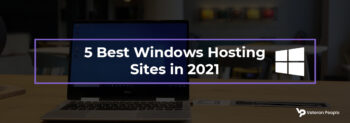If you want to know how to make my website secure? Website security can be a difficult topic in an ever-evolving landscape.
This manual is meant to offer a clean framework for website owners looking to mitigate risk and apply protection standards to their web properties. So, in this article, we are telling you about how to secure a website?
It is important to keep in mind website security is essential because no one wants to have a hacked website. Creating a secure and interactive website is as important to someone’s online presence as having a website host.
If a website is hacked and blacklisted, for example, it loses as much as 90% of its traffic. Not having a stable site may be as terrible as now no longer have a website at all or maybe worse.
We will teach you how to make your website secure from attacks? Using an SSL certificate, HTTPS, and create a secure password is the easiest way to secure a website, but there are many other things you can do to prevent hackers from compromising your website.
Steps How to Make Your Website Secure?
Here are the steps about how to create a secure website? Are given below:
7.Keep Your Website up to date
1. Select Your CMS:
If you create a website then these days you do not need to be a programmer to put together your own fully functioning website thanks to Content Management Systems (CMS).
With CMS solutions like WordPress, Joomla, and Drupal, placing collectively a website is set as clean as constructing a house out of Lego.
No depend on what CMS you choose, there are new exploits that are exposed nearly on a weekly basis. This way you want to live on top of software program updates and patches to hold your website secure.
2.Choose Domain And Hosting:
The next step towards creating a website secure is purchasing a domain name and web hosting. A web host is a company that hosts your website on its server. You can search for free web hosting from different websites like infinity.com, but this is normally unsuitable for viewers. You can choose a good host that allows you to scale as your site grows.
There are many companies that now offer web hosting, email, and other tools in one package. Be sure to research all your options and the advantages and disadvantages of each so that you can make a good choice for your photography website.
3. Manage And Install plugins:
Plugins and add-ons can increase the experience for your viewers, an overabundance can open your site to hazards. They can also slow your website down and delay responsiveness.
If you built your website with a content management system, you can enhance your site with security plugins that secure your website hacking attempts. Here are the plugins:
- iThemes Security
- Bulletproof Security
- Sucuri
- Wordfence
4. Install SSL:
An SSL certificate importantly confirms that your site is secure, safe, and able to transfer information back and forth between your server and a person’s browser. You will have to pay a yearly fee to maintain your SSL certificate.
5. Make Secure Passwords:
Using unique and secure passwords for your admin-level site aspects is not enough you will need to come up with complicated, random passwords which are not replicated by someone else and store their key somewhere outside of the site’s directory.
6. Use HTTPS Encryption:
Once you have installed an SSL certificate, your website should qualify for HTTPS encryption you can usually activate the HTTPS by installing your SSL certificate in your site’s Certificates section. One of the advantages of HTTPS is that it adds security.
If you use a website platform such as WordPress, Wix, or Weebly, your website already uses HTTPS. An HTTPS certificate must be renewed after one year.
7. Keep Your Website up to date :
Using out-of-date software you should also keep your website’s certificates up to date. This may not directly have an effect on your website’s security, it’ll make sure that your website maintains to expose up in search engines.
8. Keep Error Messages Simple:
If your error message offers away an excessive amount of data, hackers and malware can take advantage of the statistics to locate and benefit from access things like your website’s root directory. Instead of including specific information for your website error messages, bear in mind supplying a concise apology and linking again to the main website.
Conclusion
In this article, we told you about how to secure a website? So, we conclude that you can secure your website by using:
- Install SSL
- Install HTTPS
- Create a secure password.
- Keep your website up to date.
- Install security plugins
- Choose a content management system.
- Choose domain and hosting carefully.
We hope these best ways will help you a better understanding of how to make your website secure?




